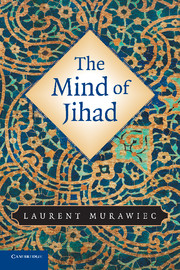5 - The Odd Pedigree of Modern Jihad
Published online by Cambridge University Press: 21 July 2009
Summary
A people bewitched
With a history written with chalks of illusion
AdonisFrom Islam to Pan-Islam
There has never been an Islam without jihad: Jihad is an integral part of Islam. In the modern world, jihad has fared no different than the religion it serves. Just as the jihadis use Western technologies to wage their wars, they also use, if more selectively, concepts and practices that originated in the West, all the while extolling the pristine purity of the form of Islam they practice. Its present composition resulted from the splicing of modern messages into the traditional genetic material. This analysis will start from the first impact of sustained Western expansion into the core areas of Islam, toward the end of the eighteenth century.
Islam sees itself as “metahistoric, divinely guided” and “essentially outside and above” history. An article of faith in Muslim orthodoxy determines Islam to be timeless and immutable, in the image of its holy book, the Quran, emphatically defined as “uncreated.” Since it sees itself as self-enclosed and self-similar, Islam cannot possibly borrow from the times in which its adherents live or from alien cultures or peoples. Islam, self-described as perfect from the very inception of its revelation, is as suspended out of time; it rests ever impervious to change in a stasis of sameness. “Few culture areas have been subjected to so much and so violent change as that of Islam; none perhaps has so consistently refused to accept the ontological reality of change.”
- Type
- Chapter
- Information
- The Mind of Jihad , pp. 169 - 255Publisher: Cambridge University PressPrint publication year: 2008



